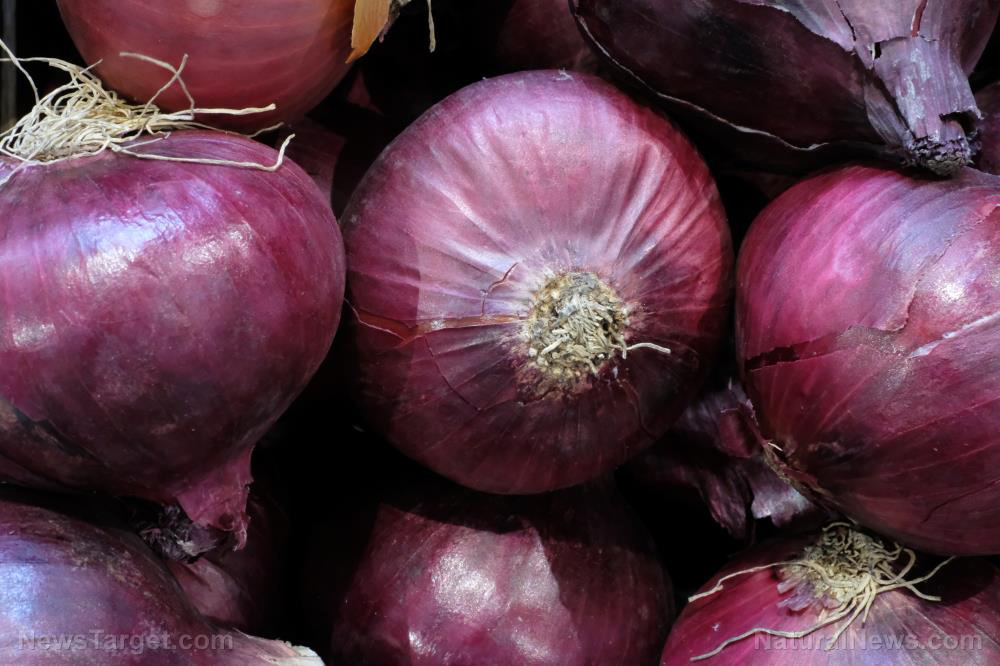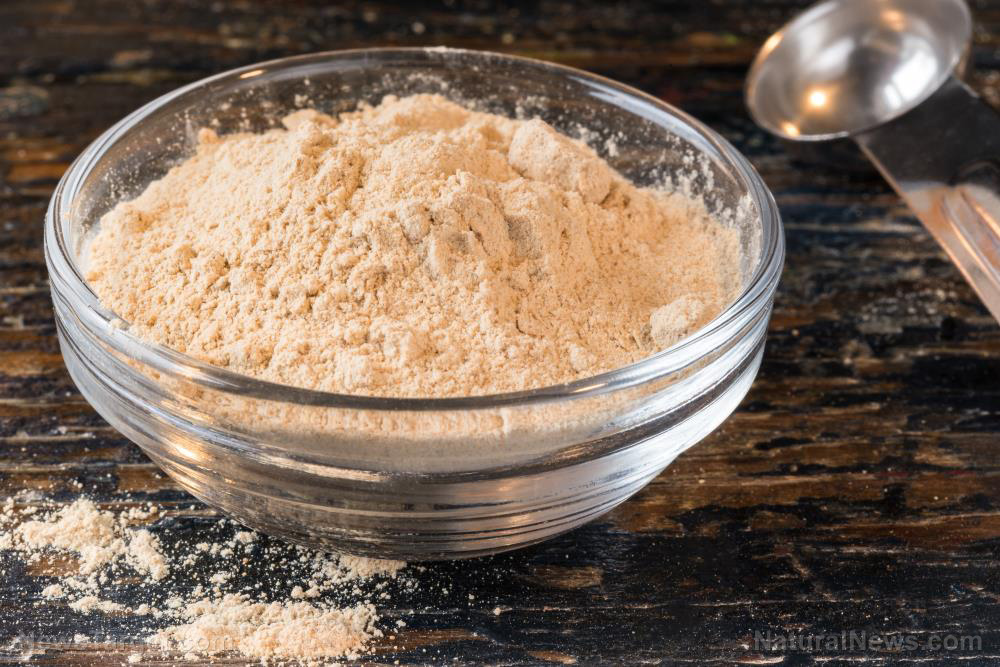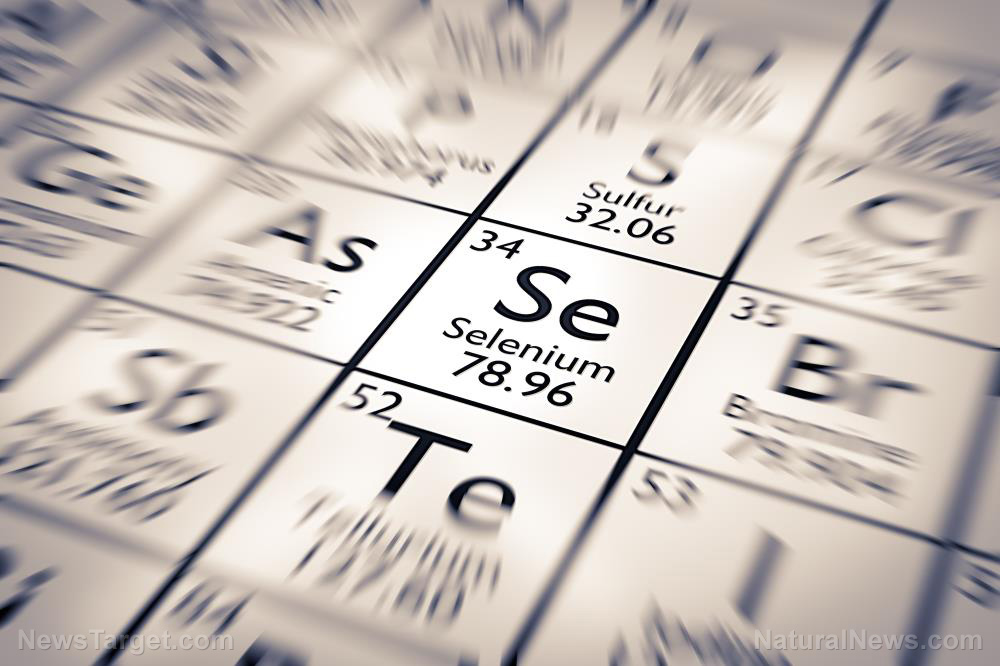Onions are an antioxidant, anti-inflammatory, anticancer and pro-heart powerhouse that come in various colors and types. Here are five of the vegetable's important contributions to health
(Article republished from
GreenMedInfo.com)
Vegetables are a crucial source of health and nutrition. There are, however, a few standout veggies, and
onions -- a staple in many American kitchens and cuisines worldwide -- have offered some of the most outstanding benefits for many generations.
The type of onion may clue you in on its specific benefits. Red onions are known to be particularly rich in
quercetin, a plant pigment or
flavonoid present in many fruits, vegetables and grains. Found in a great variety of foods as well as beverages like tea and wine, flavonoids have antioxidant, anti-inflammatory and anti-carcinogenic properties, along with an ability to modulate cellular enzyme function.
[i]
Other varieties such as green, brown and white boast their own sets of health benefits. Green onions, also commonly known as scallions, are traditionally used to treat colds, flu, abdominal pain, headache and heart disease.
[ii] Let's have a look at five impressive health benefits of onions.
1. Support Heart Health
Onions contain
antioxidants that may support healthy cholesterol levels as well as help manage blood pressure, both of which may lower the risk of heart disease.
A study involving 70 overweight individuals with high blood pressure found that quercetin-rich onion extract, 162 milligrams (mg) per day in particular, notably pushed down systolic blood pressure by 3 to 6 mmHg versus a placebo.
[iii]
Another study conducted in 54 patients with polycystic ovarian syndrome (PCOS) concluded that eating about 40 to 50 grams (g) per day of raw red onions (if overweight) and 50 to 60 g a day (if obese) for an eight-week period slashed total and LDL cholesterol, compared to a control group, which ate smaller amounts of onions.
[iv]
2. Fight Oxidative Stress
Onions are an excellent antioxidant source, and in fact offer more than 25 different varieties of flavonoid
antioxidants.
[v]
Specifically, anthocyanins, which are special plant pigments that give red onions their color, have been associated with a lower likelihood of heart attacks. This was found in a study of 93,600 women with the highest intake of anthocyanin-filled foods.
[vi] Additionally, anthocyanins offer protective effects against certain kinds of cancer.
[vii]
In a 2012 study, quercetin displayed a protective effect against sodium fluoride-induced oxidative stress in the heart in an animal model.
[viii] Consuming onion peel itself, found to contain quercetin in abundance, may also benefit obese individuals as a way to reduce oxidative stress to help prevent the onset of chronic disease.
[ix]
3. Improve Skin and Hair Health
Onion extract gel may be useful for wound healing, showing promise in improving the cosmetic appearance of postsurgical scars.
[x] A study showed that it significantly improved scar softness, redness, texture, as well as appearance at the excision site at weeks four, six and 10 during the research.
Applied topically, crude onion juice may assist in hair regrowth compared to tap water, potentially serving as an effective topical therapy for patchy alopecia areata.
[xi]
4. Provide Anticancer Benefits
Onions contain the flavonoid antioxidant quercetin, which may inhibit the growth of tumors.
[xii] In a 2006 study, a uniquely large data set from southern European populations showed an inverse association between the frequent consumption of allium vegetables, particularly onions and garlic, and the risk of several common
cancers.
[xiii]
Allium vegetables also surfaced in an analysis of a Northeast Chinese population and were linked to a reduced risk of colorectal cancer in both men and women.
[xiv]
5. Help Fight Diabetes
Consuming onions may also bring about helpful effects on diabetics by helping lower blood sugar levels. A study in 42 Type 2 diabetics, for instance, showed that consuming 3.5 ounces of fresh red onion decreased fasting blood sugar levels by 40 mg/dl after four hours.
[xv]
Quercetin, combined with hesperidin, may also play an effective role in the regulation of insulin metabolism in diabetes.
[xvi] Justifying their strong antioxidant properties, garlic, white onion and purple onion display antidiabetes as well as antihypertensive properties.
[xvii]
Quercetin also shows promise for preventing neurodegeneration in diabetic retinopathy, a severe complication of the disease and a leading cause of blindness in adults worldwide.
[xviii] Discover additional
onion health benefits and
quercetin wellness benefits on GreenMedInfo.com.
Read more at:
GreenMedInfo.com
 Parler
Parler Gab
Gab










